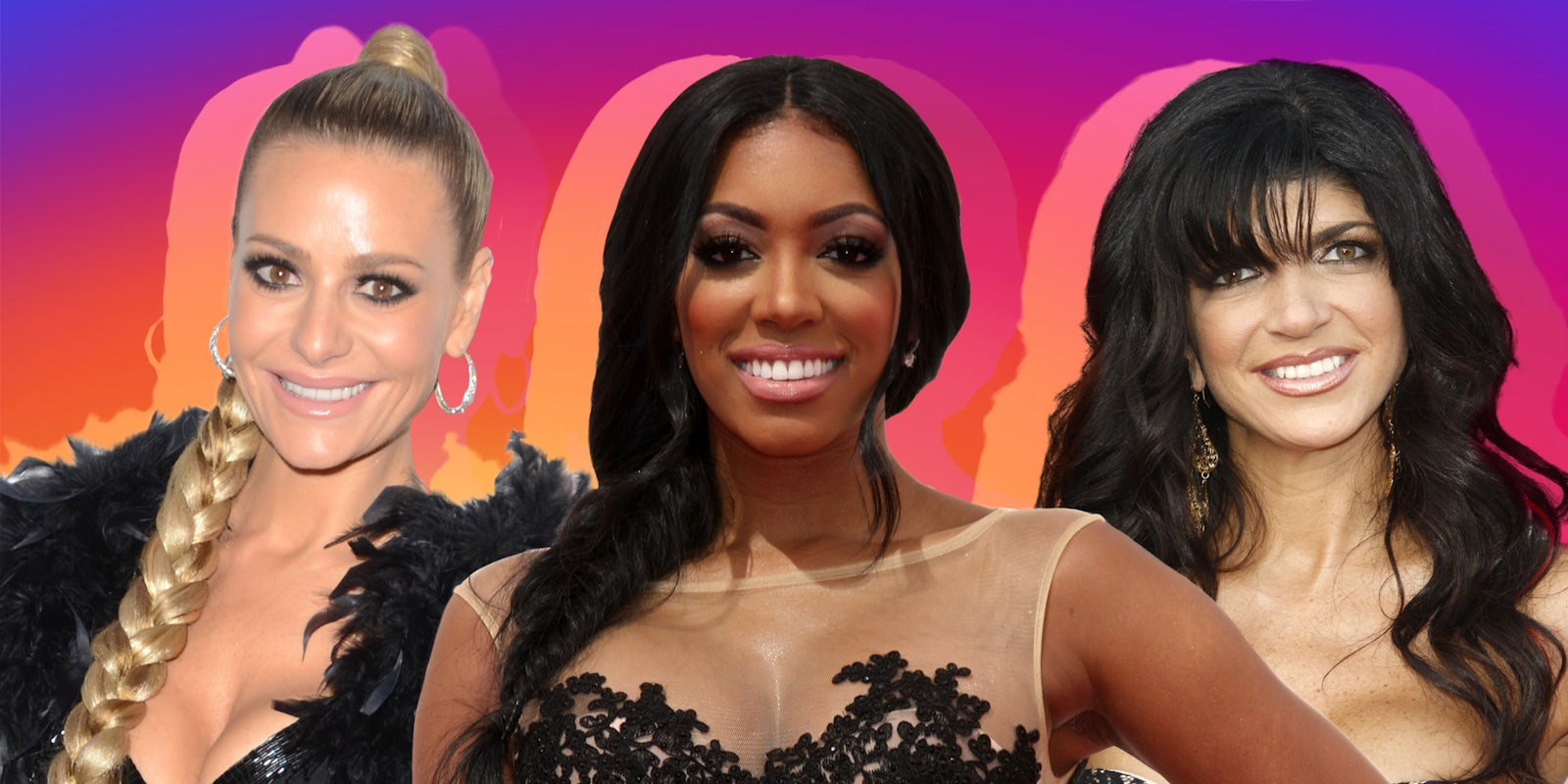
This story was originally published on Passionfruit.
In 2006, Bravo launched The Real Housewives of Orange County, a reality TV show chronicling the lives of moneyed housewives in the ritzy Southern California locale familiar from shows such as Laguna Beach and The OC. Since then, the franchise ballooned into a cultural behemoth that includes separate shows charting the dizzying highs and devastating lows of upper-crust ladies in nearly a dozen American cities, international franchises from Naples to Cape Town, numerous spin-offs, and an adjacent industry of “Bravo-lebrity” memoirs, merchandise, and media. To the uninitiated viewer, Real Housewives can come across as little more than “cat-fights” and Botox. Yet, when followed season-by-season over the years (as God and Andy Cohen intended), the shows are as epic as Wharton or Tolstoy novels in their depictions of social striving, loss, and women’s enduring struggle for self-determination.
Any self-respecting Housewives stan knows the pay-off comes not only from the shows themselves, but from the surrounding universe of gossip, podcasts, books, at least one unauthorized musical, and numerous niche social media accounts. The #realhousewives hashtag has been viewed 1.1 billion times on TikTok and returns nearly 450,000 posts on Instagram. The latter encompasses a broad church of Real Housewives digital archivists including @therealbadfashions, @therealhousewivesorders, @realyearbooksofbravo, @realhousewivessmoking, @nocontextrhony, @therealbadextensions, and @therealbadnecklaces, who hone in on specific aspects of the ladies’ lives, from covert ciggie habits, to idiosyncratic food and drink orders, and toes painfully squished into questionable shoes.



